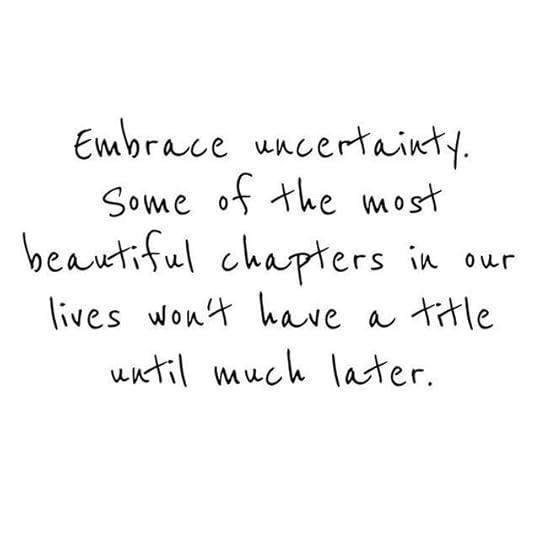Monaye Etana's Blog
October 6, 2023
Lupus and Eye Health
Lupus is one of several types of autoimmune diseases that cause the body’s own immune system to mistakenly attack and damage healthy tissues. Despite the different types of autoimmune diseases that exist, many of the symptoms are shared such as joint pain, digestive issues, fatigue, swelling, and hair or skin problems.
Another symptom that is often associated with having an autoimmune disease is dry eyes. This occurs when the eyes fail to produce enough tears or lack the proper amount of lubrication. According to research, over 30% of people with lupus suffer from dry eyes. If you have dry eyes, you may feel as if something is in your eye along with pain, itching, burning, or watery eyes. There are some lupus patients that also get diagnosed with Sjogren’s syndrome which is another autoimmune disease that attacks the glands of the eyes as well as the saliva in the mouth.
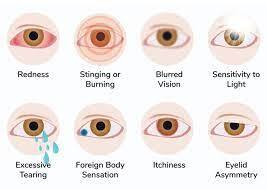
If you are under the care of a Rheumatologist, he or she may require that you see an eye doctor every six months especially if you take certain medications that can impact the eyes such as Plaquenil and Methotrexate. With dry eyes, you may use over the counter products such as humidifiers or eye shields to help with symptoms.
For more severe issues, you may need artificial tears or your doctor may prescribe eye drops. There are numerous brands available, but there are two brands that should no longer be purchased due to recent recalls that have been linked to serious eye infections and vision loss. With the number of cases increasing, the CDC and the FDA are warning consumers to stop using and return the following products:
Artificial Tears distributed by Ezricare, LLC and DELSAM Pharma which was associated with severe eye infections in over 55 patients and one death. The infections were cause by a drug resistant bacteria, Pseudomonas aeruginosa.In addition, it is advised to stop using DELSAM Pharma’s Artificial Ointment.It is so important to be aware of what we are putting in and on our bodies and to be our own advocate. If something doesn’t sit well with you, trust your intuition and speak up. After all, no one knows your body better than you do.
-Monaye
July 21, 2023
Navigating Triggers with a Chronic Illness
Living in this world is hard. Sometimes life can feel unfair depending on what you are dealing with. We have to deal with the stress that often comes from finances, raising children, work, health concerns, and other world issues. We have to take responsibility and be accountable for our actions which may not always feel good. It’s all a part of adulting, right?
Like me, you may have a chronic illness which brings its own list of stressors. Depending on the progression of your illness, you may be dealing with the unpredictability of the disease, increased medical expenses, the inability to work, and even depression.
In addition to all of that, we must learn to recognize and manage our emotional triggers. A trigger is any situation, person, or thing that stimulates a strong emotional response such as anger, fear, loneliness, or sadness.
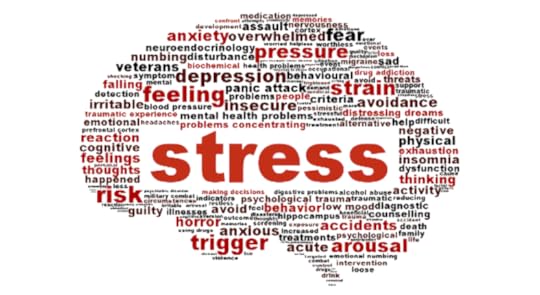
The month of July is National Minority Mental Health Awareness month which is observed to bring attention to the mental health struggles that ethnic minorities face. This month is one of many triggers for me. As a young child, I lost my mother to suicide. Over the years, I have had to learn how certain things triggered me as well as the impact they had on my emotions and behavior. There were underlying issues of abandonment that stemmed from my loss which carried over into friendships and relationships with others.
Once I understood my triggers, embraced therapy, and did some self work, I was better equipped to handle those unexpected situations. Managing triggers while living with a chronic illness is vital because unaddressed triggers may result in the following:
Increase in flare upsLack of sleepAnxietyIsolationCognitive issuesHigher risk of heart disease, stroke, or high blood pressureWeight gain or lossI encourage you to pay attention to what triggers you, how you react, and incorporate some healthy ways to address them.
Eat a well balanced diet, try guided meditation, stay active, avoid negative environments, let go of things that no longer support you, and lean on or find a support system.
Remember to be patient and kind with yourself.
-Monaye
February 6, 2023
Keep Moving
Happy February! Several things are happening this month. It’s the month that many celebrate Black History month as well as love. (Let’s not forget about self-love) While these things are certainly important, I am also choosing to use this month to maintain my focus. I am calling it Focus in February.
2022 was a mix of beautifully crafted moments and extremely tough ones. Some doors opened while others closed. Navigating life’s unexpected curve balls can create extreme levels of stress in the body when you have a chronic illness. Sometimes it can feel as if you are stuck. The doctor visits and medical tests increase. The people you once turned to are no longer there. Friendships change. Connections die. The vision you had for your life shifts. You question your purpose.
There’s an old song entitled “Keep On Moving” by Soul II Soul. One of the verses says “Don’t stop like the hands of time.” With all that life can bring our way, it can be quite tempting to want to do just the opposite. However, the sun can still shine after the rain. Much like a flower, even if you lose a few leaves, the strength is in your roots. Strong roots keep us grounded. When strong winds (problems) come, we may sway, but we won’t be knocked over. Regardless of what is going on around you, maintain your focus my friends. Someone needs your gifts, talents, and abilities. Just. Keep. Moving.
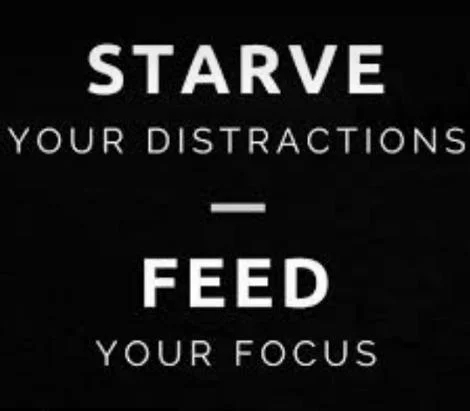
Monaye
November 25, 2022
Chronic Disease and Nutrition

Managing a chronic illness on a day-to-day basis is not easy. Depending on what you are dealing with, you probably visit a specialist and take medications that are aimed at providing relief of your pain and discomfort.
While medications can certainly help, our food choices and the things we drink contribute to how we feel. Research has shown that when heavily processed or sugary foods are consumed, this increases the level of inflammation in the body. For people with a chronic illness like Lupus, Sjogrens, RA, or MS, this can cause debilitating symptoms such as painful joints, migraines, digestive issues, and fatigue.
It is easier and less costly (physically and financially) in the long run to eat in a way that promotes good health, than to be forced to deal with the aftermath of unhealthy eating. Making choices which do not contribute to a healthy lifestyle can lead to heart disease, diabetes, high blood pressure, organ involvement, and the development of other illnesses. It is advisable to check with your doctor with regard to any dietary changes, but in general the focus should be on whole foods such as fresh vegetables, fruits, seeds, nuts, good fats, sustainable protein, and foods high in fiber. All of these foods promote good gut health as well.
For me, I gradually cut out meat and dairy and have followed a plant based lifestyle for some time now. This along with exercise, stress management, and focusing on gratitude has helped tremendously. Do I still have flare-ups? Sure, but knowing what helps my body to recover is key. Try eliminating certain foods for a while and pay attention to how you feel once they are added back. It can be a process to discovering what works for you, so be patient. Just stay consistent and committed to your well-being.
-Monaye
August 7, 2022
Don’t Lose Yourself
What a year this has been. Living with Lupus is not without it’s challenges. Some days are good, while others can make me question everything. It’s tough to navigate life’s path while looking “normal” to the outside world, but dealing with all of the things people don’t see when they look at me. After all, I am the one who deals with the emotional and physical pain, the feelings of disease alienation, and the numerous changes to my body that have joined me on this unpredictable journey.
What I’ve had to realize is that while Lupus is a part of my life, it is not who I am. I am not my fatigue. I am not my various pains and nerve damage. I am not the hair or digestive issues. My identity is not tied to an illness, but rather to who Christ says that I am. Victorious. Strong and courageous. More than a conqueror. This body of mine is just a temporary vessel and regardless of what it goes through, the spirit who lives on the inside of me has already won the battle.
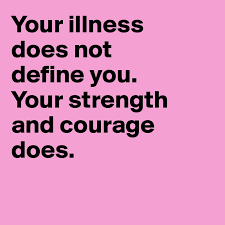
I choose to honor the warrior that’s always been on the inside of me even before Lupus made it’s presence known. My authentic self. That’s what really matters. Whether you are fighting Lupus or some other chronic illness, don’t lose yourself in the process.
Monaye
March 20, 2022
Are You Self-Aware?
If you were to ask most people whether they are self-aware, you may get various responses. Each person has his or her own fundamental idea of what self-awareness means. There are those who believe their level of self-awareness is pretty high and others who may not be so sure and that is okay. Let’s define what self-awareness is.
Self-awareness means being connected to your feelings, emotions, strengths, weaknesses, and needs, as well as being cognizant of how we interact with others. When we know who we are, we are typically better prepared to deal with the things that life brings our way.
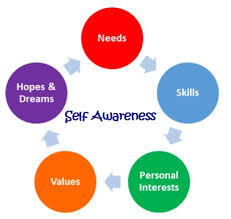
Here are some of the ways being self-aware can benefit us:
1- It helps us choose relationships with others wisely, engage with those with similar values, and encourages the setting of emotional boundaries within those relationships.
2- Being self-aware helps us to eliminate self-doubt which holds us back from being our true self.
3- It also allows us to stay mindful of what our needs are physically, mentally, and spiritually. This is vital especially if you have an autoimmune or other chronic illness. By being self-aware, we are able to notice when we need to seek the assistance of a health professional and advocate for ourselves.
4- We are better prepared in stressful situations and are more likely to respond rather than react in a negative way which could trigger a flare-up in some people.
5- Cultivating our self-awareness helps us to pay attention to areas where mistakes may have been made, giving yourself credit for what you did right, and then creating ways to make improvements going forward.
Monaye
January 23, 2022
Mental Health Matters

2022 is upon us! Many people look forward to a new year with anticipation. We aim to leave the past behind and to move towards new goals that often include better health. I am sure that you have heard the term health is wealth. What comes to mind when you think of health? If you are anything like me, you may have only thought about the physical aspect. Everywhere we turn, we are reminded to exercise, eat well, and drink enough water on a daily basis. While those things are important, there is another area of our health that should be prioritized as well.
Mental health is a subject that many people shy away from. If you suffer from poor mental health due to stress, financial issues, or relationship problems, you are perceived as weak. So, what do most people do?
They suffer in silence.
They smile when they’re hurting.
They throw themselves into activities to numb the pain. (drinking, sex, exercise, or overeating etc.)
None of these things help us with the underlying issues. While both men and women can be affected by poor mental health, men are often affected more due to the societal pressures to be masculine and strong. If the issues go unaddressed for too long, it can lead to suppressed emotions, medical issues, feelings of despair, and lead to extreme measures to stop the pain. I have read too many stories where mental health was the culprit behind someone taking their life. Suicide is not the answer. We can all strive towards improving our mental health by:
Avoid self-criticism- value yourselfTake care of your body.Talk to someone if you need to. Therapy does not equal weakness.Practice mindfulness- meditate or practice yoga.Change up your normal routine. Try new things.Set realistic goals. Don’t over commit.Surround yourself with positive people.Remember, everything starts in the mind, and our mind needs to be healthy too.
Monaye
November 28, 2021
Managing Holiday Grief

The holidays are upon us and while many people are decorating and taking advantage of the Black Friday and Cyber Monday sales, others are not as excited. They may be grieving the loss of a loved one. As a certified Grief Specialist, I was invited to speak on this topic recently.
First, let me define grief. It is the normal and natural response to any type of loss in a person’s life. Of course, death is what usually comes to mind initially, but we can grieve due to divorce, the end of a relationship, employment changes or even health status. (I had to grieve for what Lupus changed in my own life.) Regardless of who or what it is that we grieve, we don’t have to shy away from what we feel. We may feel loneliness, sadness, anger or even anxiety. The reason that holiday grief can be more difficult is because we are exposed to all of the stimuli that makes us more aware of the change that has occurred in our lives. For example, songs, certain smells, or places that we visit can evoke memories of what was.
So, how do we deal with those feelings? Do we rely on short term behaviors that numb the pain such as overeating, drinking alcohol, shopping or throwing ourselves into work? I have done a few of these things at various times in the past and not only are they unhealthy, but they don’t help us. The key to healing our hearts is to address and complete what is emotionally unfinished within that loss. This is how I help grievers.
No one has the right to tell you how long to grieve, but my suggestion during this season is to embrace your strength and courage that has led you thus far. If you’re living in a new body due to chronic illness, every day is a victory. Yes things may be different, but you are a warrior! If you need to cry, shout, curse, or journal about it, do that, re-adjust your crown and continue walking tall. If you’re missing a loved one, try and focus on the good times shared with them, the blessing that they were to your life, and the memories you will forever cherish. Family traditions may not be the same, but you can create beautiful new memories with those you do have. After all, your loved one still resides in your heart and they always will.

Monaye
October 16, 2021
Walk to End Lupus Now 2021 🦋
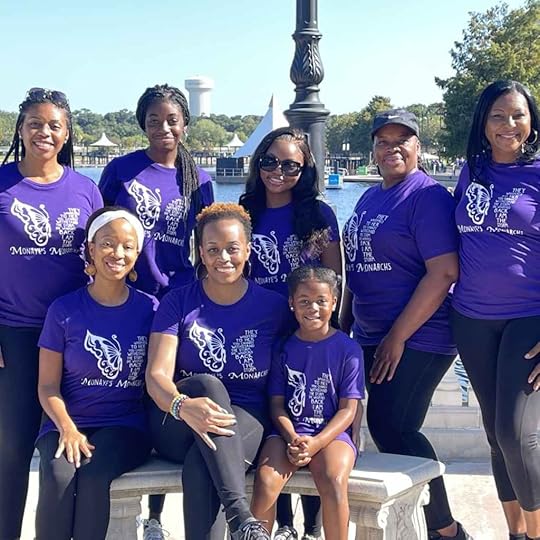 I’m so thankful for the support!
I’m so thankful for the support!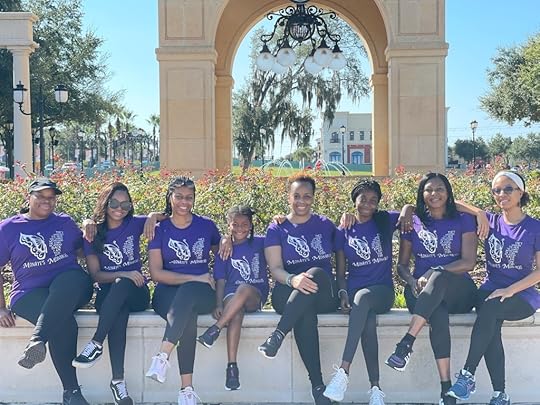 Monaye’s Monarchs
Monaye’s Monarchs 

 I am the storm.
I am the storm.
September 6, 2021
The Beauty Within
Regardless of what chronic illness you deal with or how long you’ve dealt with it, there are times when it gets really tough. The symptoms can often feel as though they will never end which can leave you feeling discouraged. If it’s not one thing, it’s another.
As a person battling Lupus, I have had my share of issues. Many of them have been with me since early on in my diagnosis but just as I start to get familiar with those, Lupus brings along yet another surprise.
CHANGE. This is a huge part of living with this illness. Learning to embrace the various changes isn’t easy. Not only do you have the ones occurring internally, but externally as well. The ones people CAN see.
Your skin is changing. Where did these rashes and bruises come from?
You’re having dental issues.
You’re losing hair.
You have nose or mouth sores.
You constantly drop things or have trouble with your joints.
These changes can truly be life altering! So much so that they can make you forget about who you are. You see, these new normals are not representative of your goodness, integrity, courage, honesty, or authenticity. (Your true beauty)
They don’t change what lies within.
Monaye
